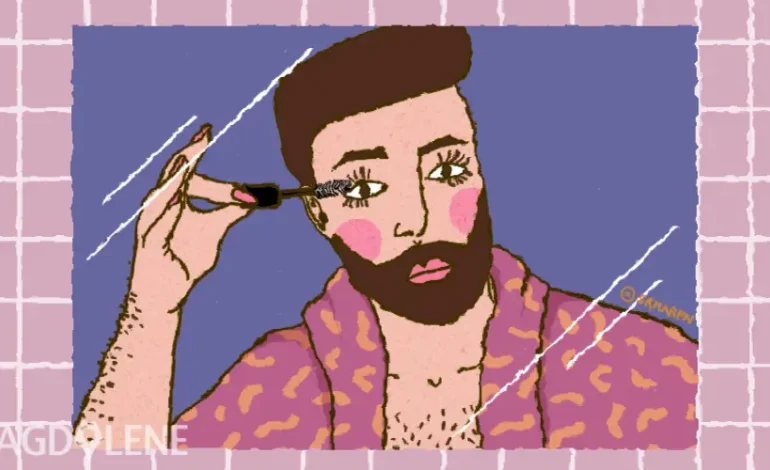Contesting the Concept of Consent in Sexual Violence

The word ‘consent’ has been ubiquitous and become a benchmark of whether a sexual act is permissible or not. Early this year, the account of Aziz Ansari’s date on Babe, which recounted non-consensual sex acts she had to perform, invited various negative commentaries.
People, often men, defended Ansari’s inability to read minds because Ansari thought his feeling was reciprocated and she didn’t indicate quite clearly that she didn’t want it.
In September 2017, the world was enraged by a rape case of an 11-year-old girl by a 29-year-old man. At the time, France hadn’t instituted sexual relationship between an adult and a minor as rape if force wasn’t used. The perpetrator faced charges of sexual relations with a minor rather than rape, because the victim didn’t object to his advances.
“Affirmative consent” as a concept has been campaigned as an effort to reduce sexual assault cases. One of them is the “Consent Conscious Kit” that can be bought online at consentshop.com. This kit comprises what philosopher Slavoj Žižek calls political correctness: a contract that states that both participants consent to a sexual act. In his piece on the site RT.com, Žižek scrutinizes the practicality of the kit. What if, from a Freudian point of view, our Id contradicts our Ego or Superego? Also, wouldn’t negotiating what sex acts to agree upon kill the mood?
The philosopher offers an interesting scrutiny to the concept of consent. However, consent is not at fault practically. The question is: is it true that the consent framework is the best way to protect women?
What’s wrong with consent?
While the concept of “consent” is easy to digest to counter the antediluvian notion of sex, I’m worried that the use of the word as a justification of every sexual encounter simplifies the issue. In the longer run, it has the potential to be used as a palliative when we refuse to confront the root of sexual violence: male entitlement to women’s bodies.
First, women’s “choices” are potentially dubious under patriarchy, especially consent in sex. The closest definition of an “ideal” consensual sex is from Indonesia’s website Tirto.id: “Relationships that involve voluntary agreements and prioritizing comfort from both parties in conducting sexual activity”.
From this definition, we can crystalize that consent requires two features: voluntary agreements and comfort. Let’s see where it fails. If “voluntary agreements” refer to agreements created not under pressure, I contend that women’s choices in sex are made under patriarchal pressure. When a woman agrees to have sex with a man – in what we should call consensual sex under the consent platform – decades of feminine socialization come at play. This socialization, derived from millennia of women’s oppression, permeates every aspect of the woman’s life and hence affects her behaviors and choices.
In 1987, a prominent feminist activist Andrea Dworkin released “Intercourse”, a ground-breaking account of how society perceives heterosexual relationship. Operating on the idea that sex behaviors are learned and instituted by patriarchal system through political and cultural forces, heterosexual intercourses are defined by the men’s action.
For instance, we use the word “penetration” to suggest that men do the action while women are passive, while we could use the word “engulfing” to describe a vagina making her way around a penis, or “copulation” that refers to a woman and a man joining together in the act.
Socially, patriarchy prescribes men as the initiators of sex and sex as a form of social currency for men. On the contrary, it dictates women to submit to men and instils fear that men might be violent if women refuse to have sex with them. The socialization colors the woman’s final “choice” in having sex with the man.
Men, apparently, describe sex as good if it gives them orgasm, while for women, good sex is the one where they’re not hurt.
Prioritizing comfort is also questionable. If it were true that consensual sex involves prioritizing comfort, then majority of them were not consensual at all, as shown by the staggering numbers of women who reported discomfort in sex. A publication of the National Center for Biotechnology Information (NCBI) in the USA records that about one-third of women (and only 7 percent of men) reported pain during vaginal intercourse, while 72 percent of women – compared to 10 percent of men – experienced pain during anal sex with moderate or severe pain for the women.
This research also notes that most Americans do not say anything to their partners about their pain. Corroborating this fact, Professor Sara McClelland from University of Michigan also confirmed that, “Men and women imagined a very different low end of the sexual satisfaction scale.” Men, apparently, describe sex as good if it gives them orgasm, while for women, good sex is the one where they’re not hurt.
But what if there are instances in which women are truly liberated and free from feminine socialization?
Let’s imagine the best-case scenario: a white American woman living in the age of sexual liberation, aged 25, raised by feminist parents in a progressive family, reads feminist literatures religiously, and is a graduate from an Ivy League university. What if she wants to enter a sexual relation with a man?
Under this condition, I argue, the consent framework still doesn’t answer power relations inside heterosexual relationship. Freya Brown, in her article, “Let’s Talk About Consent”, says it rather boldly: consent framework reinforces rape culture. Rape culture hinges heavily on putting the blame on the victims through interrogating their choice of clothes and why they didn’t say no in lieu of investigating the perpetrators’ motives and behaviors. Similar thing also happens under consent framework.
In her critique against the consent platform, C.K. Egbert reasons that it becomes a shield to protect sex acts that harm women under the defense that “women enjoy it too” and avoids questioning the acts ethically or politically. As such, the person at the receiving end of the acts, often a woman, bears the responsibility of not being harmed. This blurs the line of what’s ethical or not. What other crimes depend on the subjective opinion of the victims instead of objective, observable facts? To quote Caroline Norma, “Consent is a concept almost magical in its power to erase wrongdoing against women.”
What she implies is that it is imperative that we shift our focus to investigating why men want women to perform certain acts in sex. When the questionnaires don’t include the word “rape” or “sexual assault”, but specific actions and tactics, young men openly admit to ignoring consent of the women they have sex with.
This happens also in Indonesia. Based on a research conducted by Professor Rachles Jewkes, 31.9 percent of Indonesian men identified themselves as rapists with an astonishing 68.8 percent of the respondents reported to have raped a partner and raped a woman as a single perpetrator.
It’s clear that the problem with rape is the rapists, therefore examining why they act this way will be more effective and efficient to eliminate rape cases instead of putting the burden on the victims.
A policy that focuses on addressing power imbalances within heterosexual relationship can be a start. Academic Caroline Norma took notes of several attempts undergone in Australia. In November 2017, RMIT University had proposed to ban sexual contact between staff members who hold a position of authority and students. She also suggests to criminalize sex with someone who is drunk or incapacitated, considering that the parties involved in the sexual relations “…are deemed too socially unequal to make ‘consent’ possible.”
Analyzing the concept of consent, in the end, requires seeing sex from a critical lens. It’s important to be conscious of what values our culture instils on sex and the way it affects our lives. The awareness that sexual behaviors don’t just exist in a vacuum might be extrapolated to analyze other relevant issues, from pedophilia, statutory rape, prostitution, pornography, sex dolls and robots, to BDSM. In all cases, ask ourselves: why do our society institutionalize sex this way.
Illustration by Sarah Arifin.






















